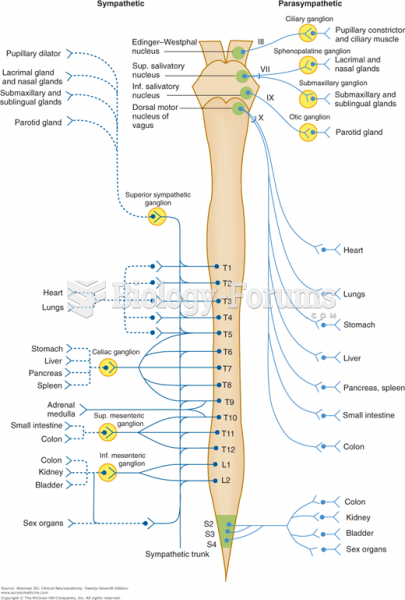|
|
|
About 100 new prescription or over-the-counter drugs come into the U.S. market every year.
Asthma is the most common chronic childhood disease in the world. Most children who develop asthma have symptoms before they are 5 years old.
Hypertension is a silent killer because it is deadly and has no significant early symptoms. The danger from hypertension is the extra load on the heart, which can lead to hypertensive heart disease and kidney damage. This occurs without any major symptoms until the high blood pressure becomes extreme. Regular blood pressure checks are an important method of catching hypertension before it can kill you.
Human stomach acid is strong enough to dissolve small pieces of metal such as razor blades or staples.
More than 4.4billion prescriptions were dispensed within the United States in 2016.







